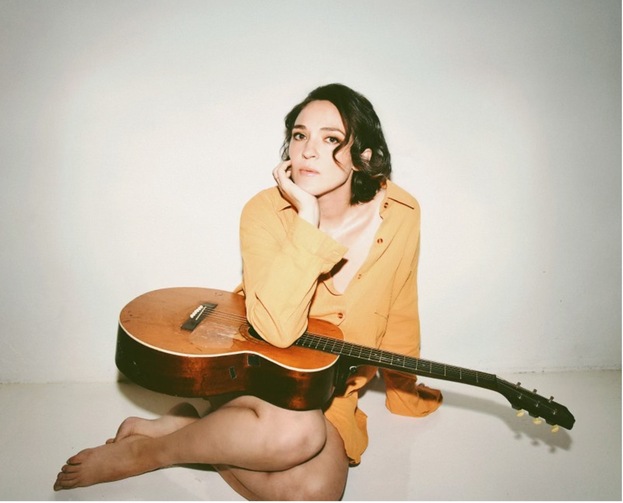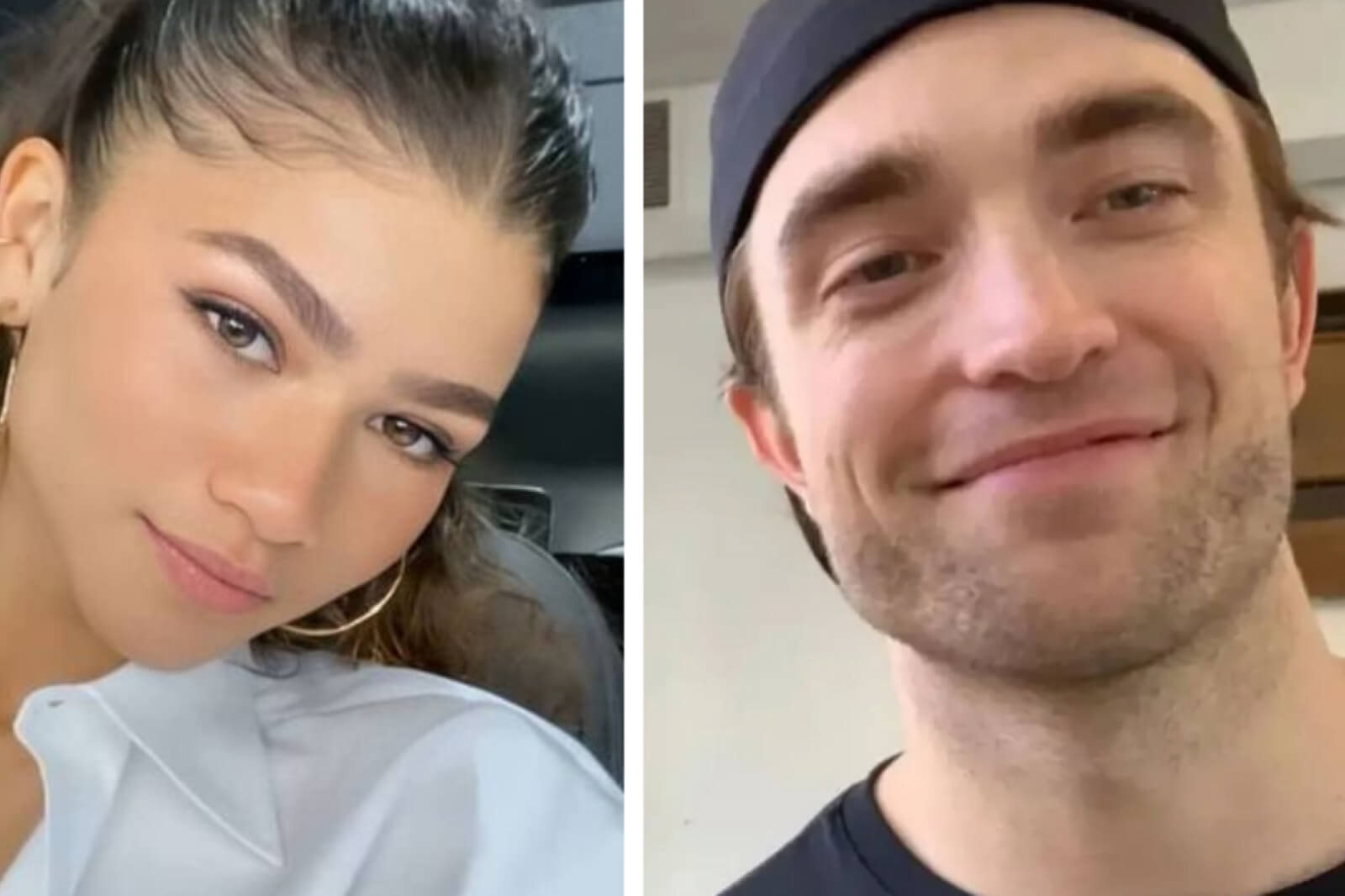
Becca Stevens
Shervin Lainez
When we talk, Becca Stevens is in Hong Kong, playing a string of shows. Before that, she was in Japan. Before that, she was on Broadway on the cast of the Tony Award-winning musical, Illinoise. All while juggling the demands of motherhood and working on her new album, Maple to Paper.
“It’s all very surreal and exciting,” she says. But as someone whose artistry has developed over years, she’s used to being in service to the art — wherever that takes her. Maple to Paper is proof of her commitment to following her inspirations, no matter how painfully personal. An album about motherhood, artistry, and selfhood, it explores Stevens’ grief over losing her mother while becoming a mother herself. Known for her ability to infuse her personal reflections with universality, Maple to Paper shows Stevens at her most vulnerable.
As her first acoustic folk album, most of it was recorded in single takes, produced alongside Nic Hard to create a stripped-down sound that keeps the listener grounded as the lyrics explore philosophical realities and existential meditations. But this doesn’t feel like a departure — rather an extension of herself. With each album, she says, she embraces a different muse. Maple to Paper involved searching through the most tender parts of herself by stepping into a character and a new sound and transmogrifying them for an audience.
“This record is very different from Wonderbloom,” she says. “I’m sure that there will be people who are not into it, and they’ll think, I guess this is how she is now. But by the time that happens, I will already be working on the next thing, so I’m not even what they think I am. Once it gets to that point, I’ll already be somebody else.”
Becca spoke to us about all things Maple to Paper and Illinoise — talking transformation, transmuting painful emotions to an audience, and her inspirations (including Sufjan Stevens).

POPDUST: How has it been to play the new songs?
Becca Stevens: So much of this process has been a solo venture — writing them at home alone, recording them at home alone — so getting to play them in front of human beings who are reacting to things is awesome.
One thing that has been really cool and refreshing is to hear people laugh at my jokes. Because my sense of humor in a couple of the songs is a little dark and dry. And to hear people get it and laugh at it is startling to me because I’ve just been singing them alone, and then I hear people get my dumb little jokes, and it startles me in a really nice way.
POPDUST: You’ve talked about the anxiety of sharing such a personal album. Can you speak to that a little bit?
Becca Stevens: In the darkest moments of this album – processing my grief and also birthing the album artistically – I would get in my head about feeling like it was too much to share, too personal to put out into the world. And these intense moments of imposter syndrome being like, Why? What makes me important enough to share this kind of grief with a bunch of potential strangers? Why would I do that?
And it’s actually funny that I ended up doing Illinoise because I was feeling that way one night, and one of the things that brought me out of it was listening to Sufjan Stevens’s Carrie & Lowell. The deep sense of catharsis that album gives me made me think, I need to be writing this stuff anyway. The only difference is that I’m recording it and sharing it with people. And if, by sharing that, I could have that kind of effect on one person, then it’s worth it to me.
POPDUST: How do the songs change when you go from that initial cathartic expression to something for an audience?
Becca Stevens: There are stages. The writing process was like ugly therapy sessions. Just processing and going through all the stages of grief randomly, like a grief roller coaster. Then, the recording process was one step removed from that. I was more focused on trying to rise above the technicality and go back into the emotional — but in a more controlled, spectator-type way, dipping back into the role of how I felt when I wrote the songs, but without losing control. And I say that because in the recording process, I had takes when I was able to fully commit to this character that was experiencing the grief, but if I had gone fully into it, then I wouldn’t have been able to execute the song.
So it’s a balancing act there. And that was almost an athletic venture. It took me the better part of a year to get to the point where I believed all of the takes. The recording was done live. Everything. I was singing and playing at the same time, and I was really hoping for as close to complete takes as possible. The third stage that I’m in now, performing this stuff, is totally different. It’s a totally different experience to be able to witness the exchange of energy and have it be received by an audience.
POPDUST: In some of your lyrics, you talk about this juxtaposition of privacy and performance because you’re talking about such private moments. But you’re very aware of the Artist as a performer and the Artist’s role in translating a feeling to an audience. Can you talk about where the idea of character fits in?
Becca Stevens: This record came at the perfect time in my artistry. Separate from the process of traversing this grief of losing my mom and while becoming a mother, I have been, with each record, more and more inspired by the task of stripping away the veil, like the artistic veil, and really cutting to the core of honesty. I think it’s easier to do that when there’s something that you have to be really honest about. On the hard days, I’m like, This is too much to share. And then on the good days, I could be like, Okay, this is the ultimate challenge — to really buckle down and embrace the truly authentic voice that’s coming out of an experience that literally everyone goes through at some point in their life: loss.
If we’re lucky, our parents die before we do, and so it’s a very shared human experience. So, committing to the expression of honesty and authenticity was a refreshing challenge and something that I’m interested in anyway. Early in my songwriting career, it was my tendency to avail myself of things that I was really feeling or ashamed of feeling. And I’m always going to be a person that’s drawn to doing the thing that’s harder for me. And so this record was like, Okay, this is already hard, so I might as well go full throttle into that thing that’s been interesting to me.
POPDUST: Do you feel differently about any of this album – or can you see growth or evolution in your perspective with distance? Or even answers to some of the questions that you pose in the songs?
Becca Stevens: When I was in Hong Kong, I was playing old songs and these new songs on the same set. Also, in Japan, I sprinkled in a couple of old songs and played them after the new songs. And they feel so different to me. It’s not it’s not like I dislike my old songs. It just feels like such a different version of myself, a different part of my brain, and a completely different energy on stage. Songs from Regina make me feel empowered, and I feel like I’m stirring up energy and raising the energy in the room. Then, songs from Maple to Paper feel heavier, like I’m bringing people into this really heavy, dark, but womb-like state.
As far as my reaction to the songs, after some time, it’s much easier for me to get through them without crying. Now, I can enjoy the process of playing them, and I can enjoy them. I can step outside of them and enjoy the music and the process of sharing them with people.
POPDUST: For this album, you reference confessional folk influences. Who was inspiring you, and what was drawing you to those influences?
Becca Stevens: Nick Drake and Elliot Smith both come to mind — not only as songwriters but as guitar players. Some of their records are just guitar and voice, but — at least for me personally, as I’m listening to them — it doesn’t occur to me. Then I’m like, what’s happening here, and it’s very simple. It’s just guitar and voice, or guitar and voice doubled. But because of how it’s recorded and played, particularly the guitar playing, it feels so full, and you don’t miss the fancy overdubs, production, orchestrations, and stuff like that. So, that was something that I referenced with Nic Hard when we were mixing it. We sent a lot of stuff back and forth — we talked about Nick Drake and Elliot Smith, and then there’s some Kurt Cobain and Radiohead in there. There’s Robert Johnson, Piedmont blues guitar, and right-hand stuff in there. And also people like Bob Dylan and Joni Mitchell. And almost the sound of folk, without it being specifically attributed to any one person,
POPDUST: Some of the people that you mentioned make me think of that opening line of that opening track, “Now Feels Bigger Than The Past.” You say: “What is it about an artist dying that makes art feel more palatable?” What was on your mind when you wrote that?
Becca Stevens: Do you remember what year Prince died? Like 2016. I wrote the first line on a little piece of paper and stuck it to my wall shortly after he died because I’m a huge Prince fan. And I remember being annoyed by seeing people who I knew weren’t really fans sharing bite-sized versions of Prince on social media – whatever the most popular song, and acting so emotional about losing him.
On one hand, I was like, great. He deserves that. But also, as an artist who’s struggling in the streaming world and still very much feeling the burden of artistry on my body after the 20 years that I’ve put into this artistry, the world doesn’t take care of me. And then you look at somebody who’s had such fame as Prince, and in a lot of ways, the world still wasn’t taking care of him either. People at his level, you’ve seen time and time again somebody dies because they overdose on a drug that can help them sleep at night or get through the next day because the work is so taxing.
And they’re not making the money that they need to be making from their art because people aren’t paying for it anymore. Then, we tag a Spotify clip on a social media post. And I was just frustrated by the fact that these people weren’t actually supporting the art. But I jotted that on a piece of paper, stuck it to my wall, and forgot about it for a while. Then, a year or so later, when my mom was re-diagnosed with breast cancer, and she was dying, I pulled the paper off and wrote this song that created a thread between the two.
POPDUST: Mortality is a theme on this album. So is impermanence. Can you talk about creating that thread?
Becca Stevens: So I was thinking about this idea of impermanence and how that affects our perception of the thing. Like someone dies, and then suddenly, you want to dive into their work and appreciate them more. What if you take that same concept into someone who’s betrayed you? And then they die, and you’re able to forgive because they’re gone. Then, the third verse is the same thing applied to the process of losing one’s parent or mother and how that affects them as well. When my mom was sick and dying, and after she died, I thought about my own mortality a lot, especially when I was writing “If I Die Before You.”
POPDUST: You talk a lot about the maker feeling the way that they’ll be seen. Thinking about audience, does the idea that the work will be seen and heard by an audience affect you when you write?
Becca Stevens: As a songwriter, there’s this constant dance, almost like the angel and the devil on your shoulder, between the Muse feeding you this beauty and this effortless artistry and this internal critic that is like embodying voices from your past, or voices from social media, or what you fear other people might think. Our job is to oscillate between the two. Sometimes, those voices of the internal critic are feeding you things that might be useful. And sometimes, it’s total Malarkey, and it needs to be ignored at all costs.
POPDUST: To talk about Illinoise, what was it like to be part of that production?
Becca Stevens: As I mentioned before, I’m a huge Sufjan Stevens fan. I got the call from Timo Andrus, who did the orchestration for the show, and we’ve been friends for 20 years. And Shara Nova, who sang on the original album on Illinois from way back in the day, she could only do the first half of the run and my friend Timo was like, oh, Becca would be really cool for this. Let’s see if she’s available. And he called me — I think it was three weeks after I had a baby — and he was like, I know you just had a baby, but I feel like you’d be really cool for this. And I was so committed to taking this time to recover and be quiet, but he started talking about it, and I was like, Oh, I think I have to audition for this because it just sounds too good to be true. So I auditioned, kind of half thinking that I wouldn’t even get it. And then I was offered the part.
Being in the show was so amazing to be a part of something bigger than me that had really very little to do with me. It gave me so much space on the stage to have a sense of coming back into working, working hard, but to come back into feeling like an artist and like a professional publicly after a couple of years of feeling more like a mom. I felt like I was doing exactly what I was meant to do, rather than being alone in a room trying to figure out what I was supposed to do.
POPDUST: Another theme of the album is impermanence, and a live production only exists each night while an album is recorded permanently. How do both experiences and living in both worlds lend to the art itself?
Becca Stevens: Some nights, I’d be on the train with people who were at the show who didn’t even know who I was. I struggled sometimes, like an ego struggle where I was like, Is this even happening? But it was both challenging and also deeply cathartic and refreshing that I didn’t matter. I’m a part of this bigger thing. It’s not being recorded, and I’m not seeing it back. My daily mantra became: “Have fun, be in service to the bigger thing, and don’t take yourself too seriously.” And I was just telling myself that over and over and over again.
And now that I’m coming back to this world where I’m playing my own music, I think I’m noticing a difference. It’s easier for me to handle my own nerves and use some of those same tools. Because even though these shows that I’m playing now are all me and by myself, the same stuff still applies. People come to shows, and if you’re lucky, you have 70% of their attention. We’re really not all that important. So, I’m able to have more space for that feeling of being a conduit and serving the greater thing,
Listen to Maple to Paper here:
Watch the video for “Now Feels Bigger Than The Past” here:














